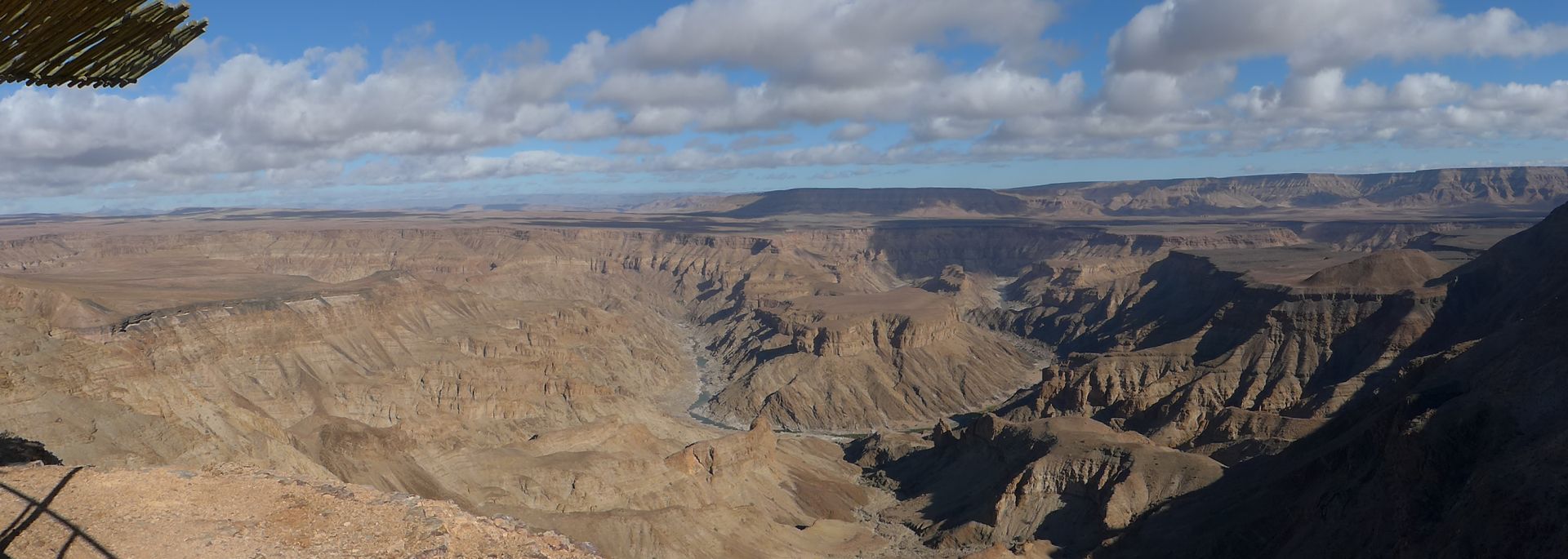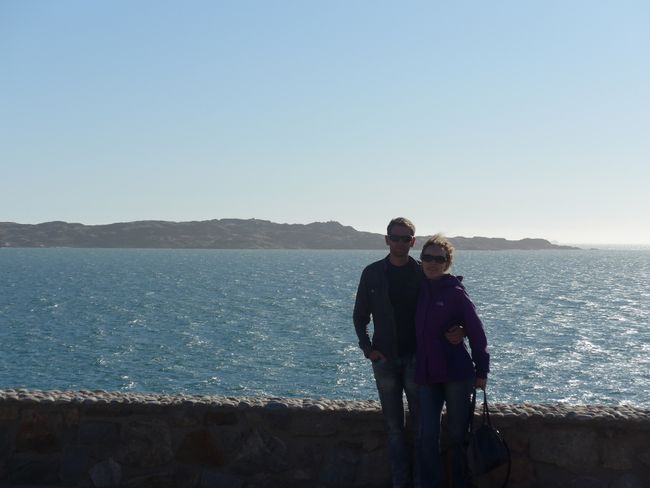Melbourne (Australia Part 14)
Argitaratu: 02.11.2018
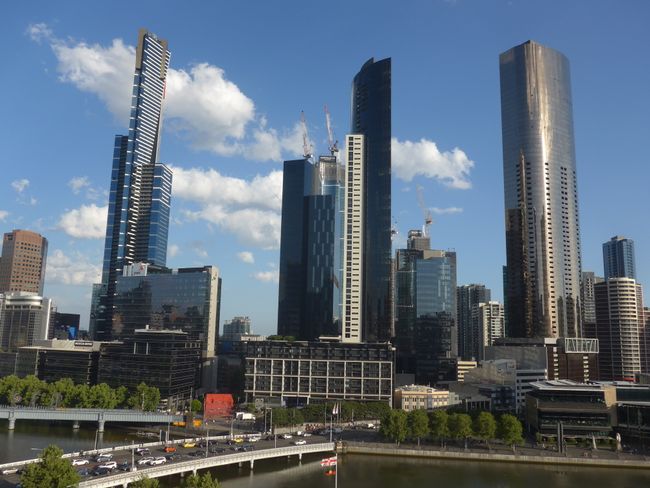
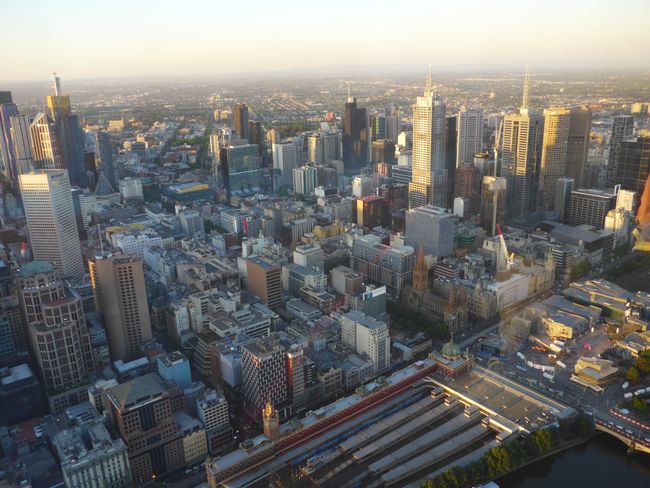
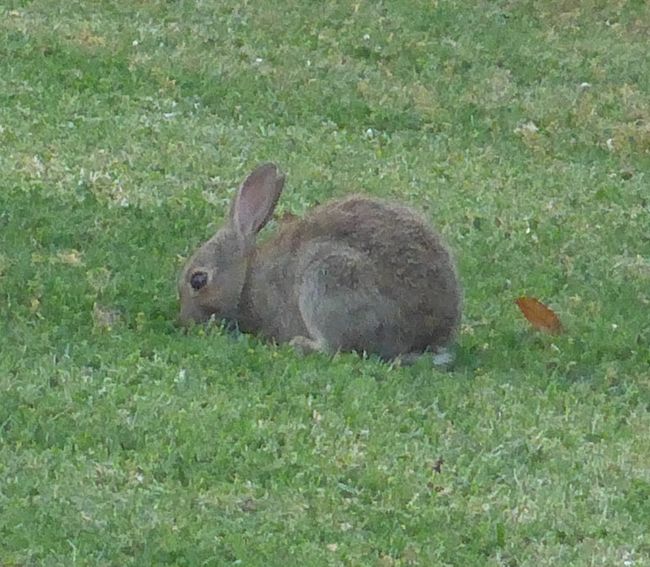
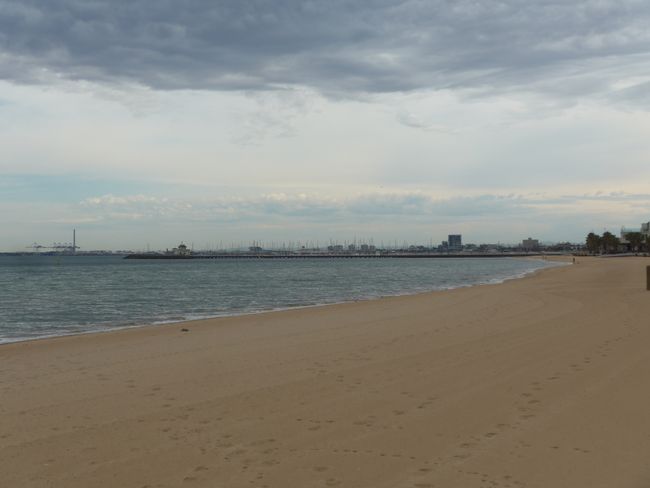
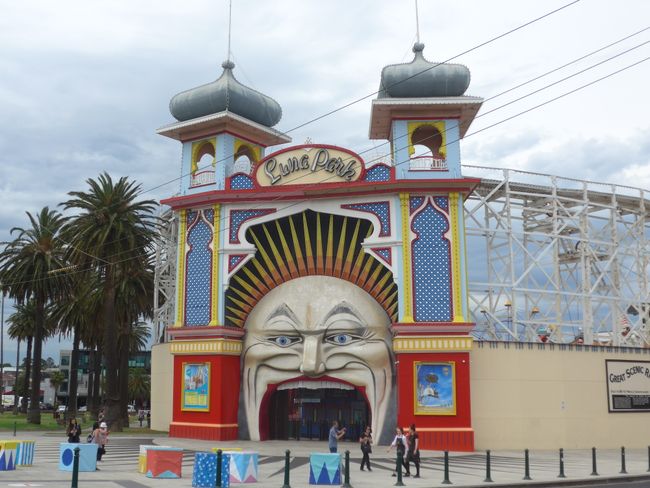
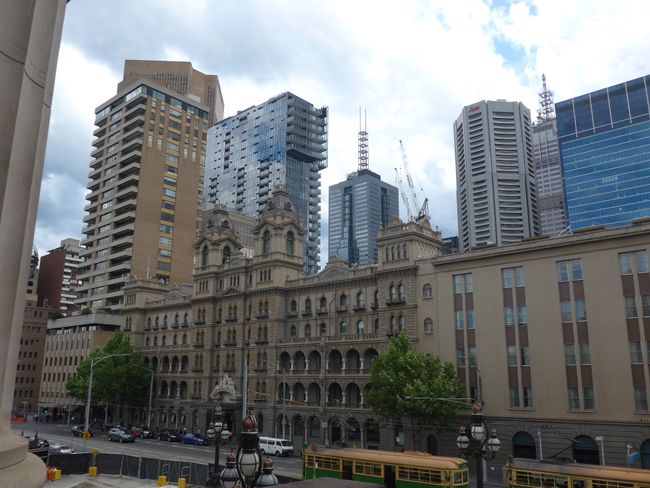
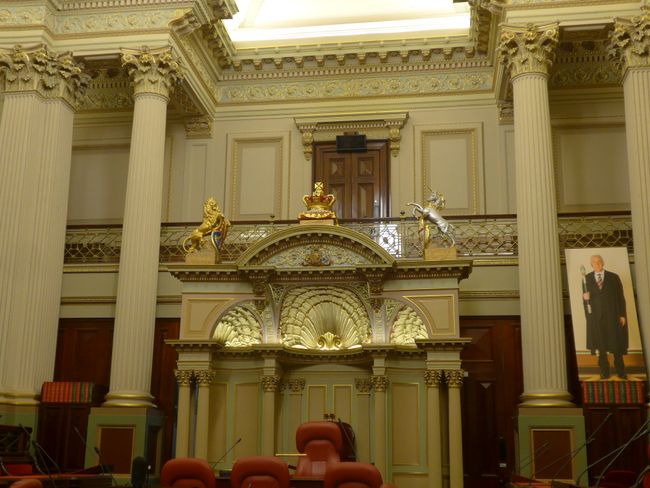
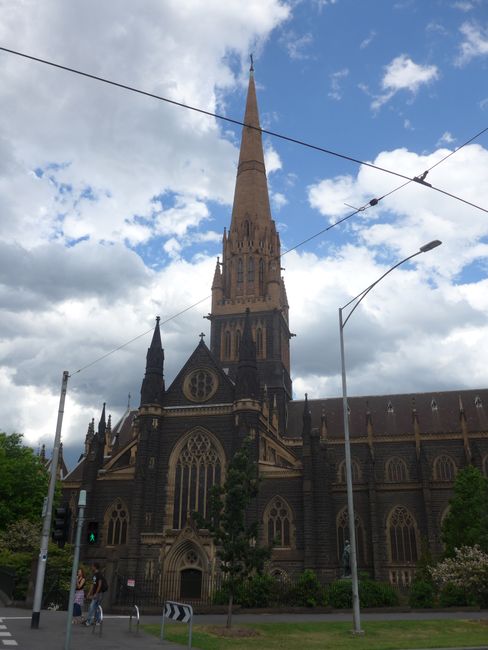
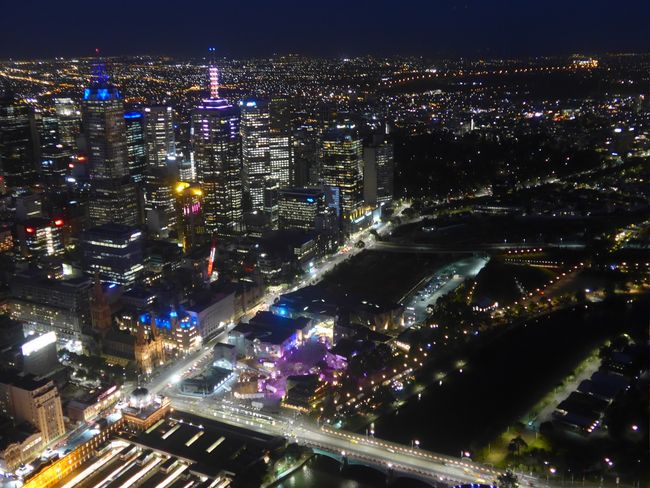
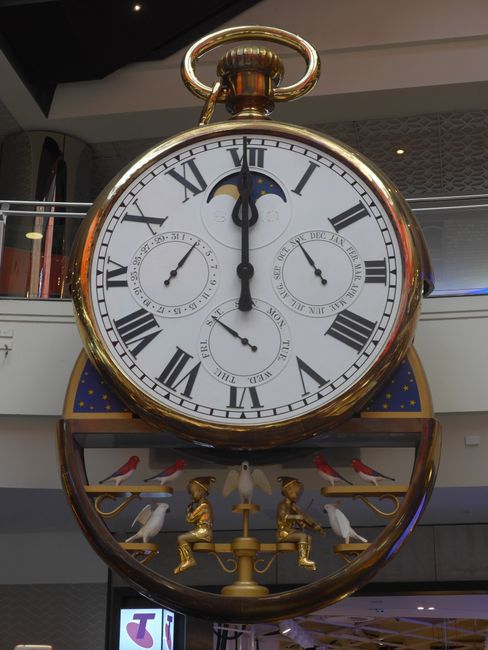
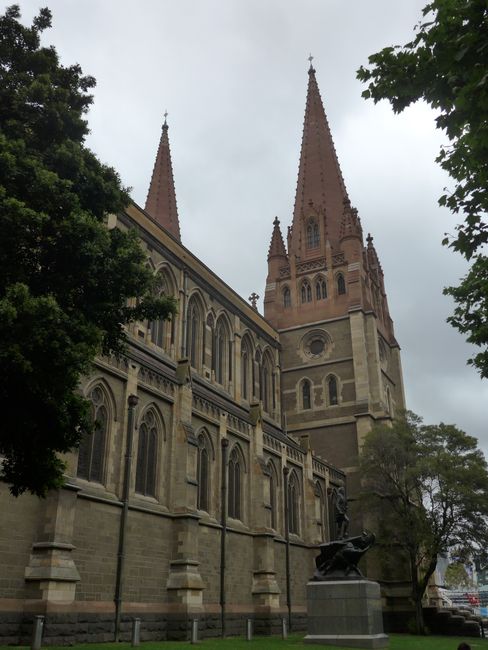
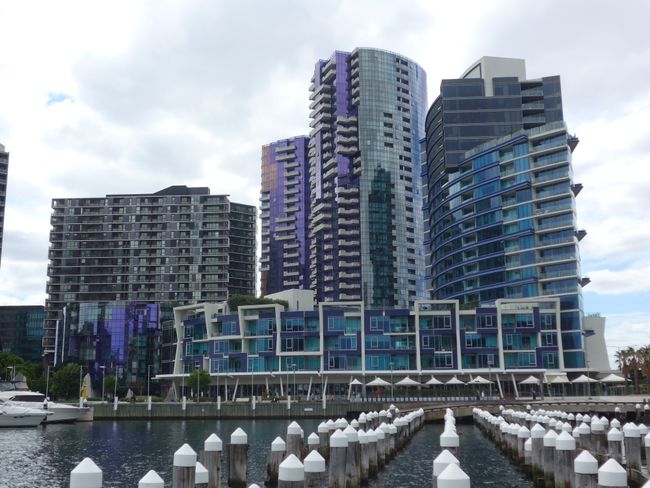
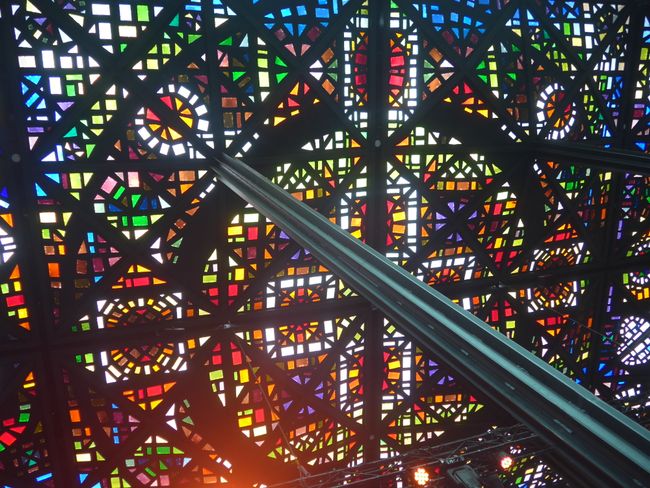
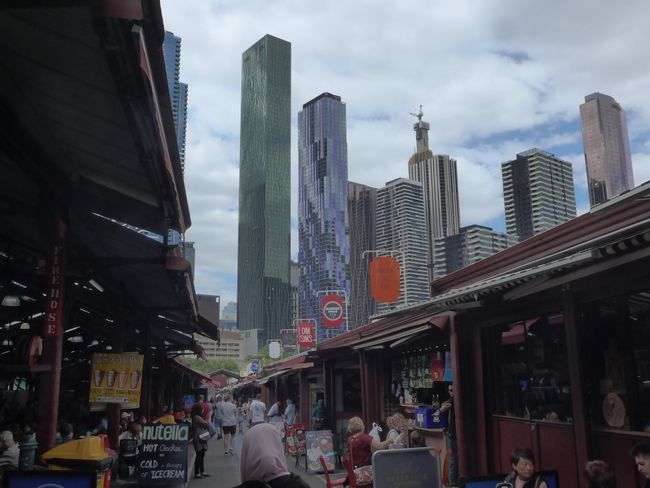
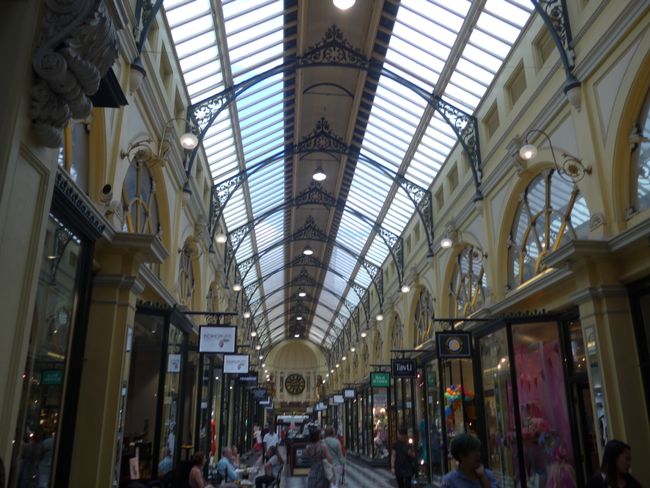
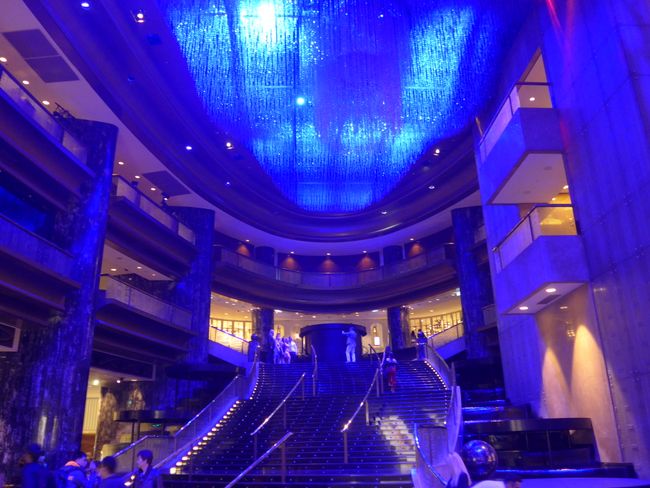
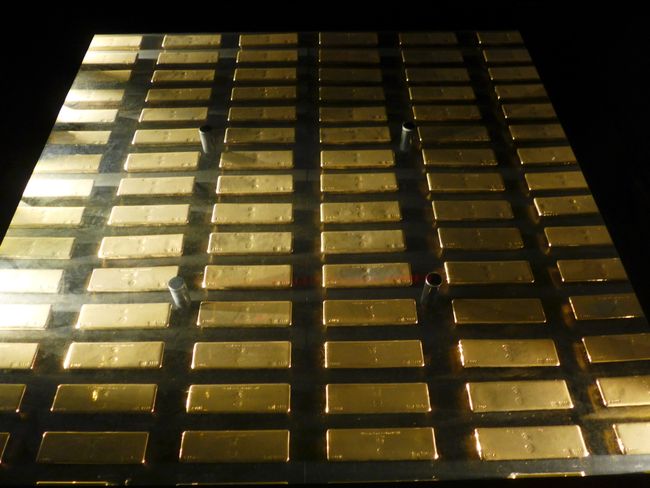
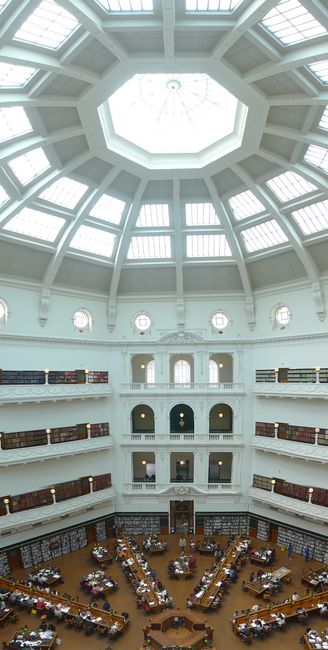
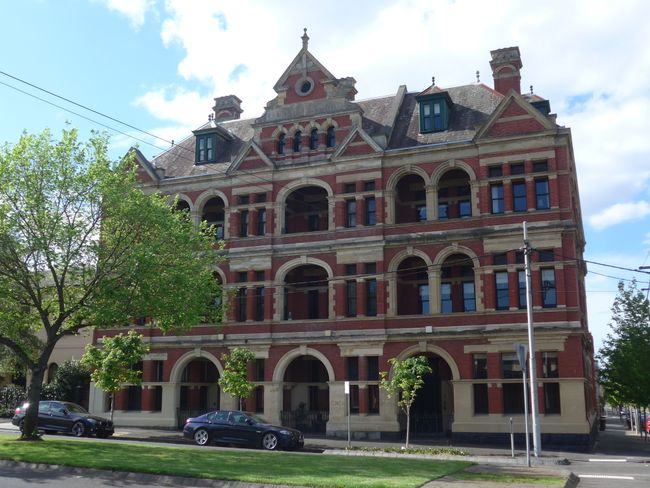
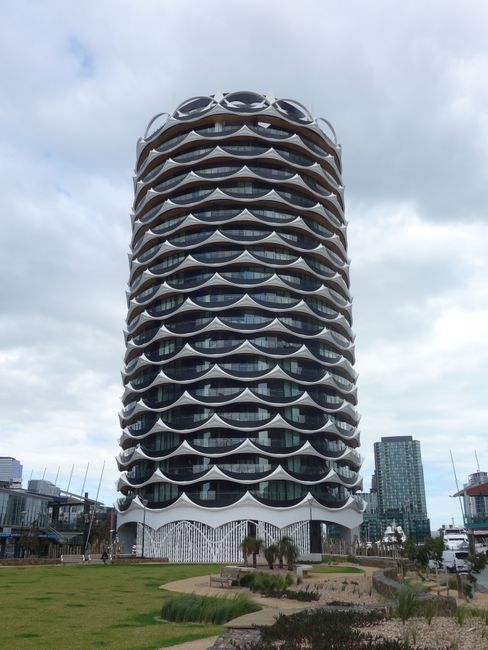
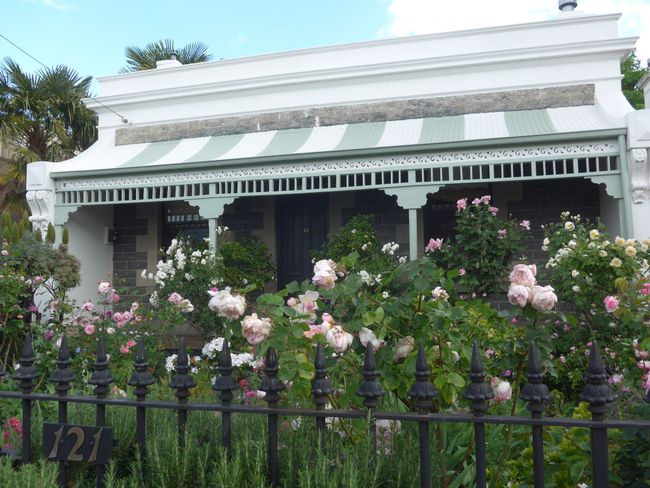
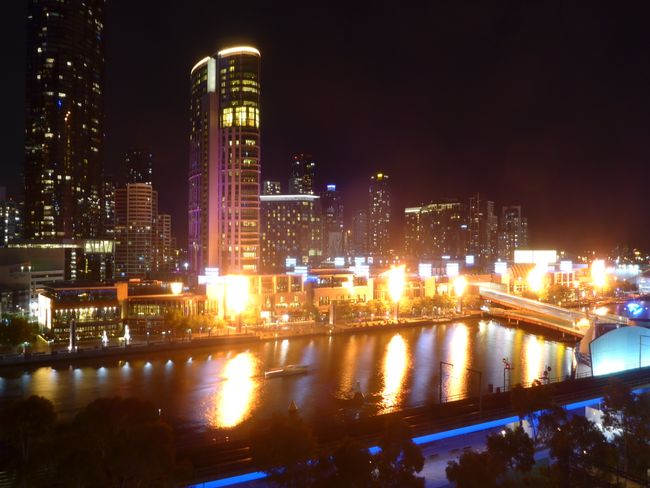
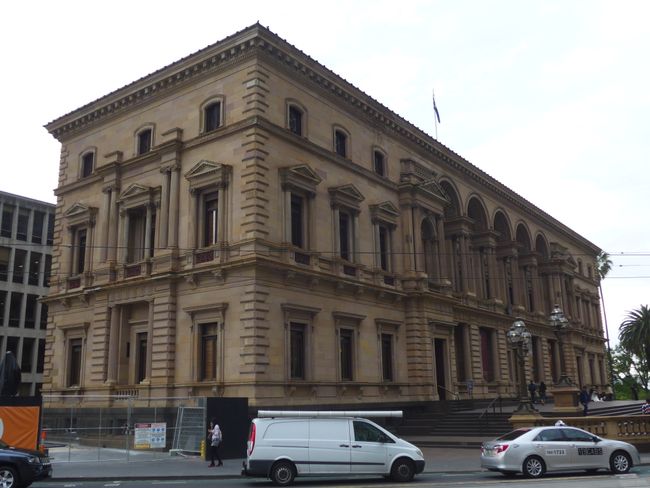
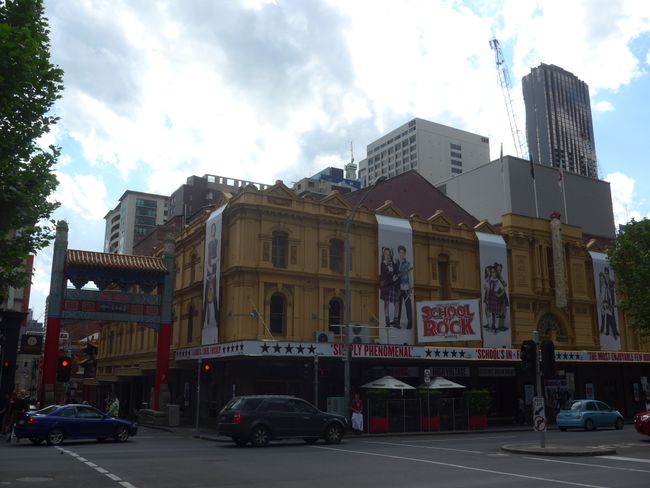
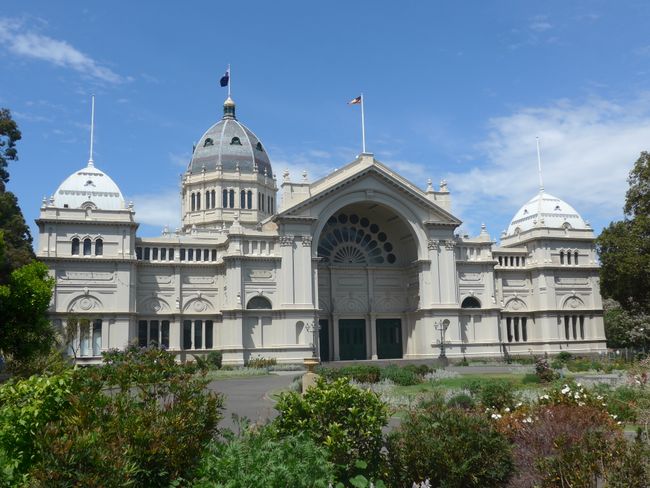
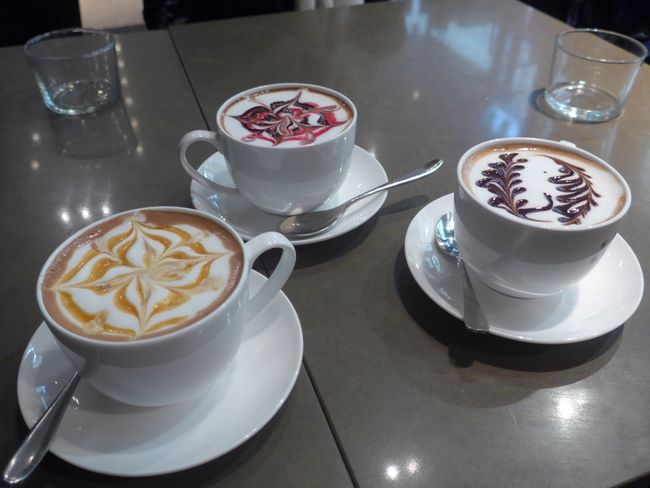
Harpidetu Buletinera
Before we went to Melbourne, we stayed one night in Flinders on the Mornington Peninsula. During our evening walk, we saw the first rabbits in Australia, which are supposed to be a real nuisance since their introduction by the settlers, at least according to mathematical problems on exponential functions.
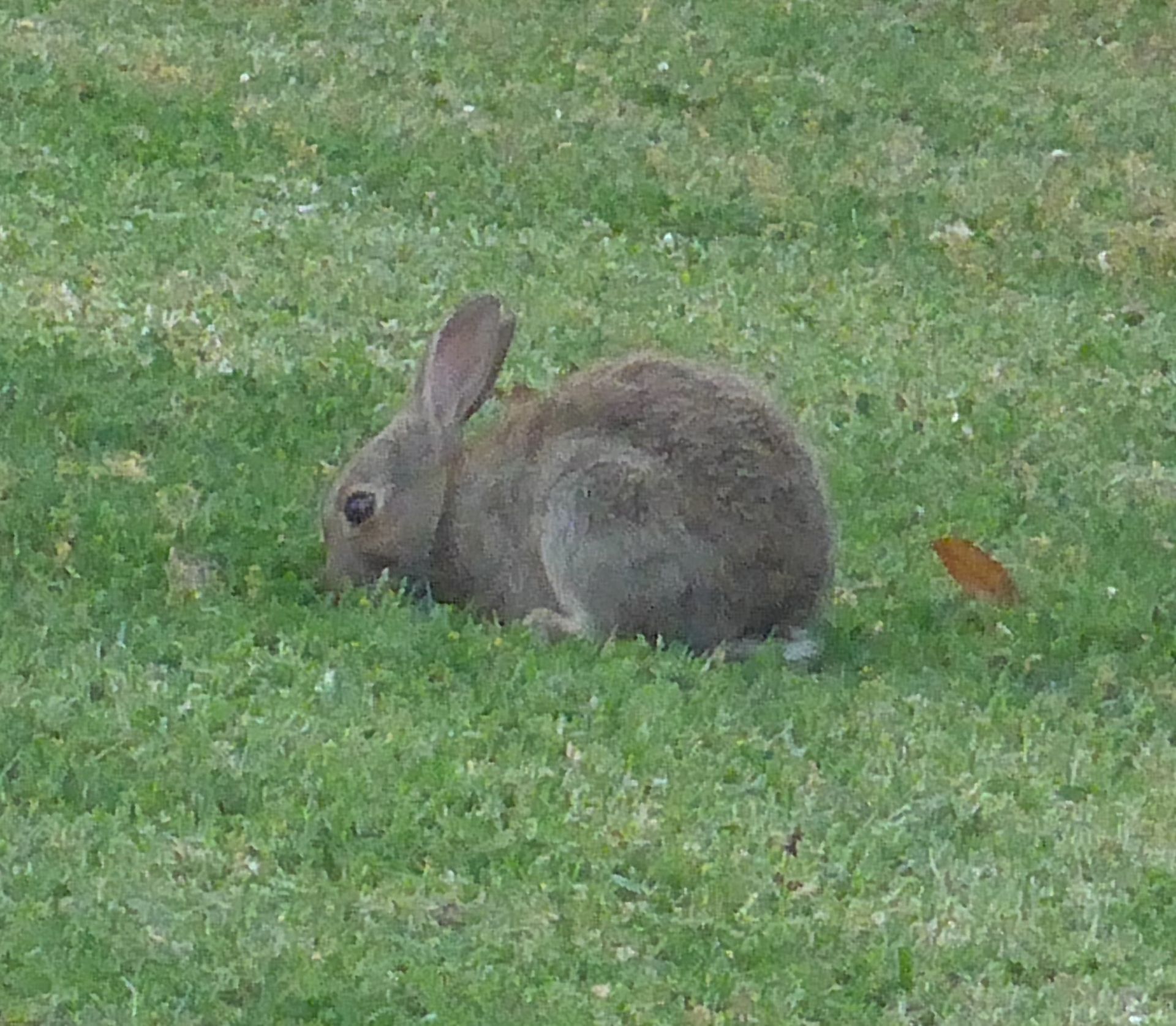
For the drive to Melbourne, we took a 'scenic route', which didn't impress us much, maybe also because of the rather bad weather. From the viewpoint 'Arthurs Seat' (which sounded more like the brand of a certain Artur in the navigation system), we could only see Melbourne's skyline very vaguely.

We got a better view when we stopped in the suburb of St. Kilda, which is known for its beach and the amusement park 'Luna Park'.
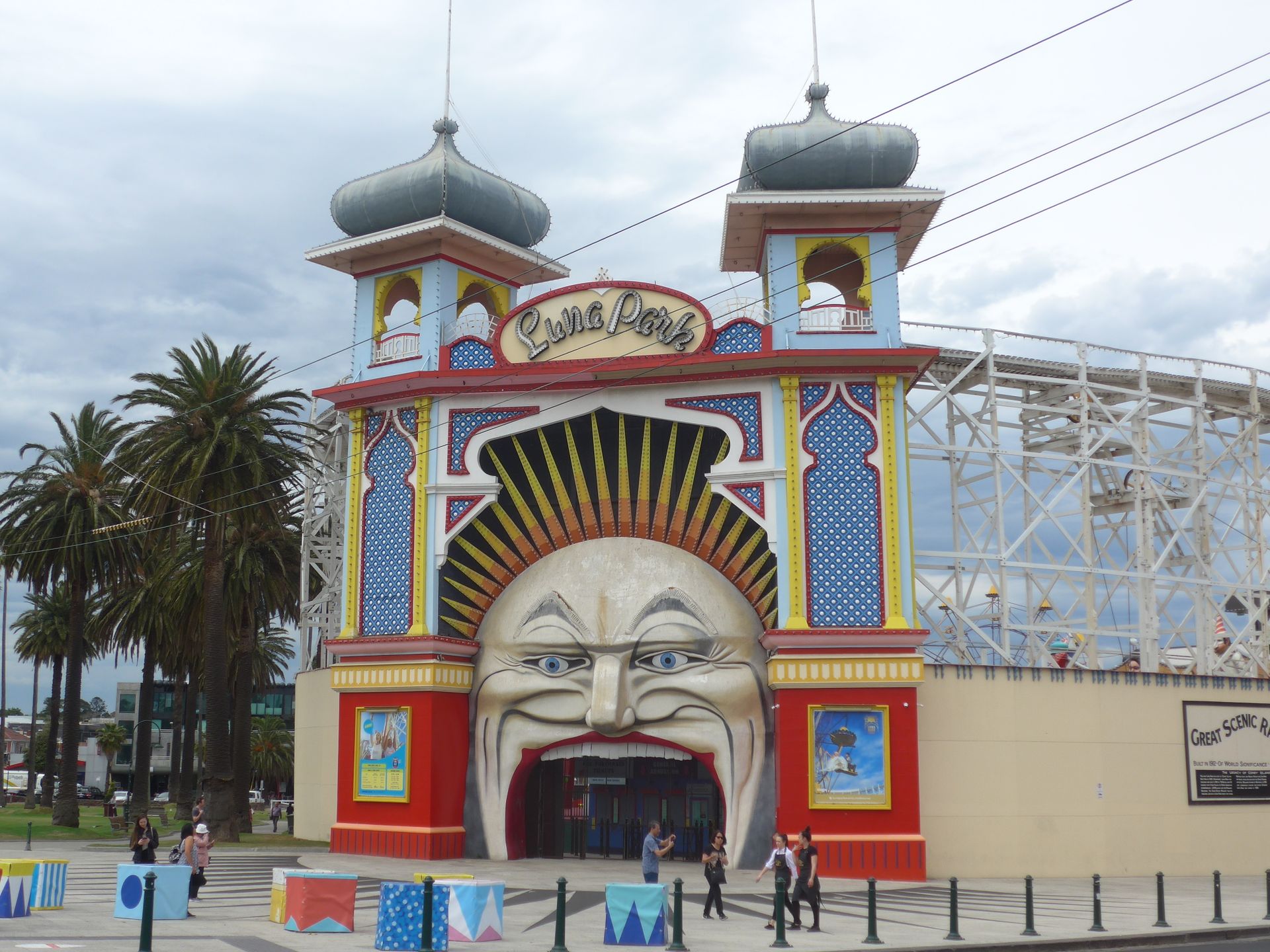
Luna Park
Unfortunately, it was still closed on Friday morning, so we could only see it from the outside. We then drove to the city center, where we returned our rental car. Since we initially forgot to refuel, we had to drive again and I also got to try out Melbourne's special rule for right turns: If there are tram tracks at the intersection, you don't turn right immediately, but first go all the way to the left. There you wait until there is no more traffic on the intersection and then drive diagonally across the road to the right. Fortunately, there was always another car in front of me that I could follow.

View from our hotel room
First, we visited the parliamentary building on a guided tour. Our guide, who had acting qualities, made the tour very lively and explained a lot to us about the history and laws of Australian democracy.


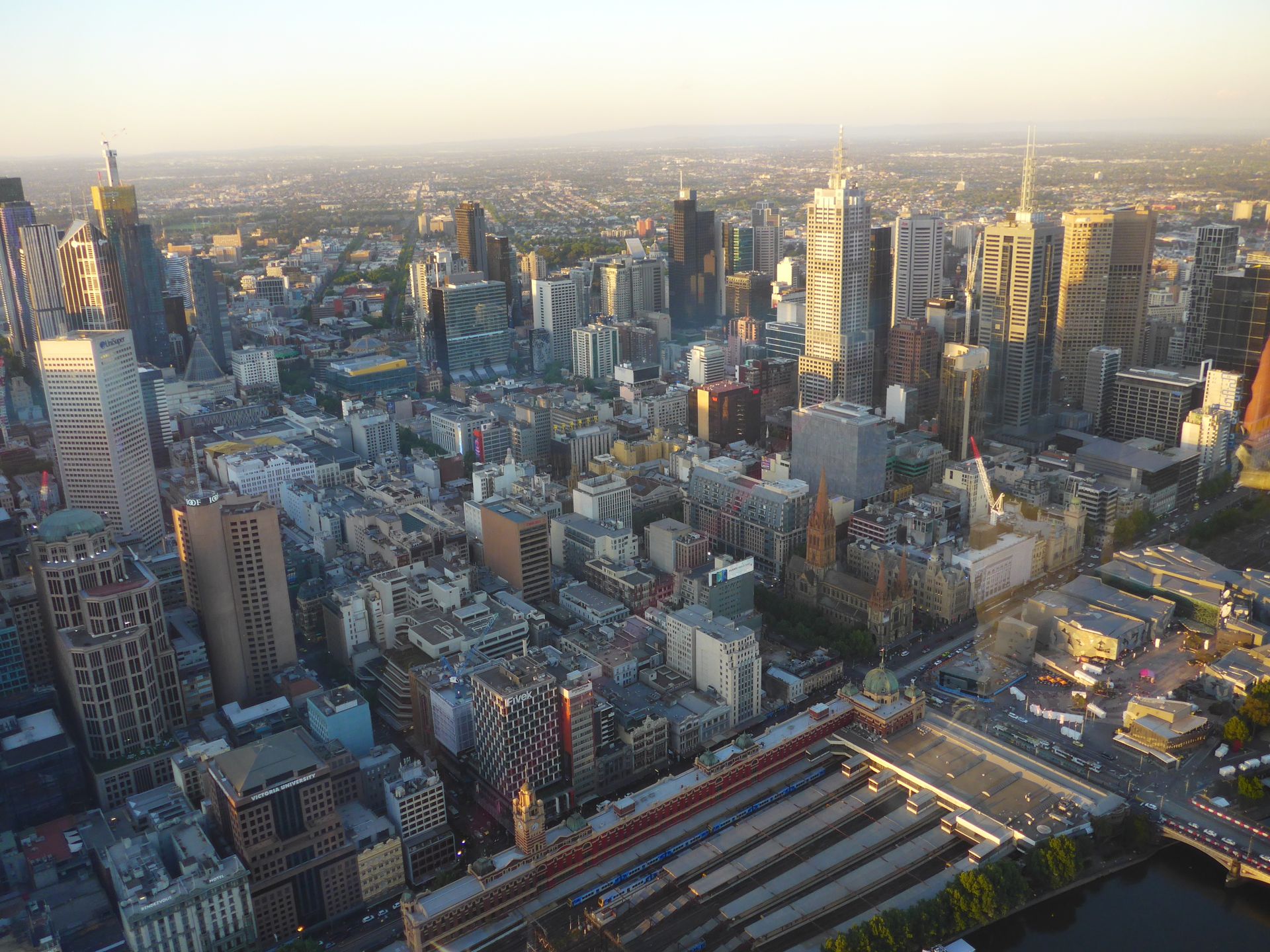
While enjoying a glass of champagne, we waited until it was completely dark to see the city lights.
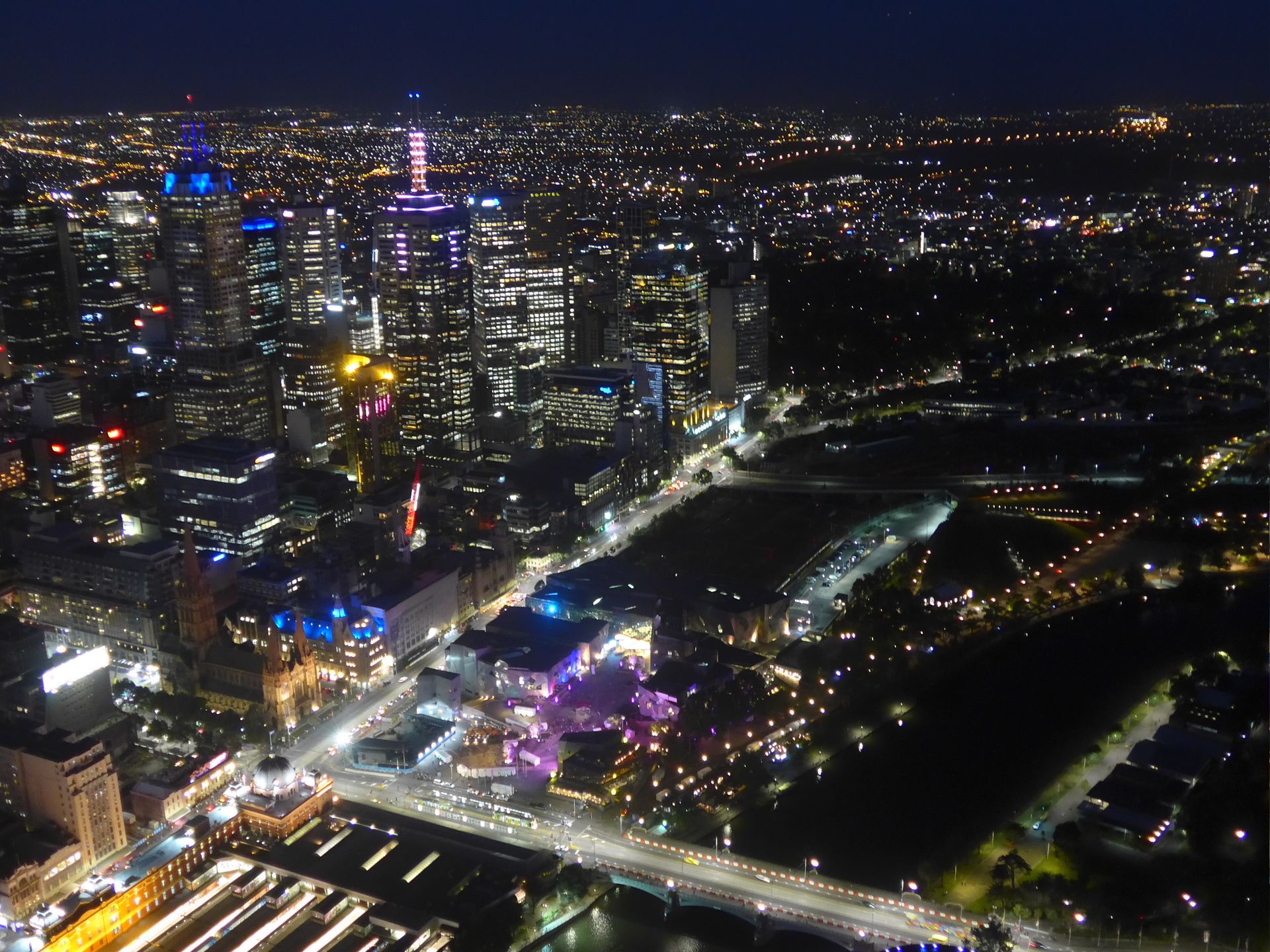
The next morning, we booked a city tour with the 'Melbourne Greeters'. Local residents volunteer to show tourists their city and the places they particularly like. We were accompanied by Heather, a very friendly lady with a passion for modern art.

We saw St. Paul's Cathedral, Melbourne's Anglican cathedral, and learned that the architect had never been to Australia himself. The towers of the church were built 40 years after the rest and therefore have a different color.

In the National Gallery, we had to lie on our backs to look at a stained glass ceiling. It was designed by a painter who had never worked with glass before and learned it especially for this project in Europe. The room is reminiscent of a forest with tall steel columns.
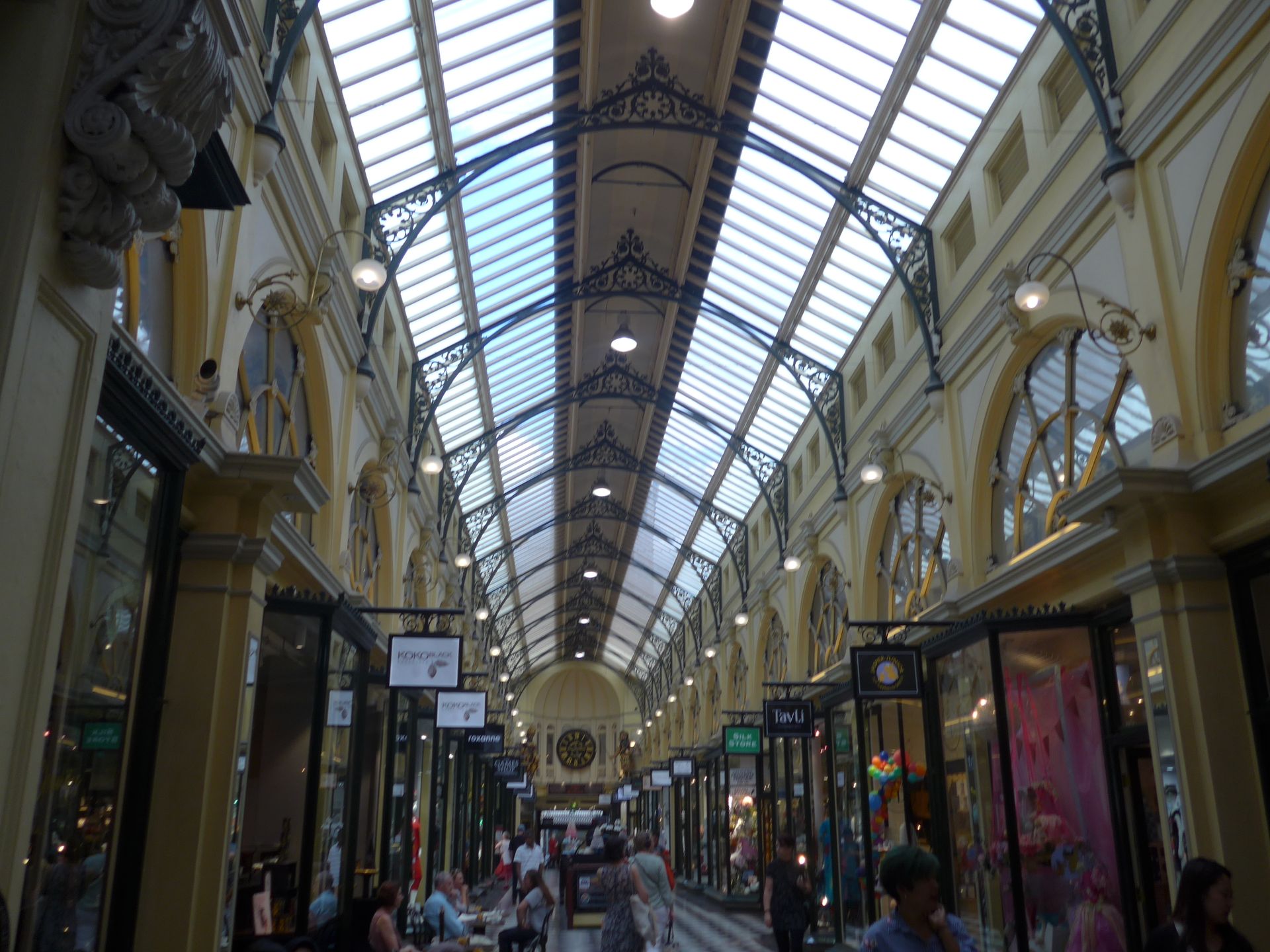
In the city center, we strolled through some 19th-century shopping arcades, which used to protect the ladies' skirts from getting too dirty from the street dust while shopping.

Finally, we saw an oversized pocket watch in the Central Station, which plays 'Waltzing Matilda' and releases rocking birds once an hour.

From there, it was not far to the Queen Victoria Market, a huge open-air market with delicacies, fish, meat, fruits, vegetables, clothing, and various other things. When we had a snack there at noon, we unexpectedly met former students who were traveling through Australia.
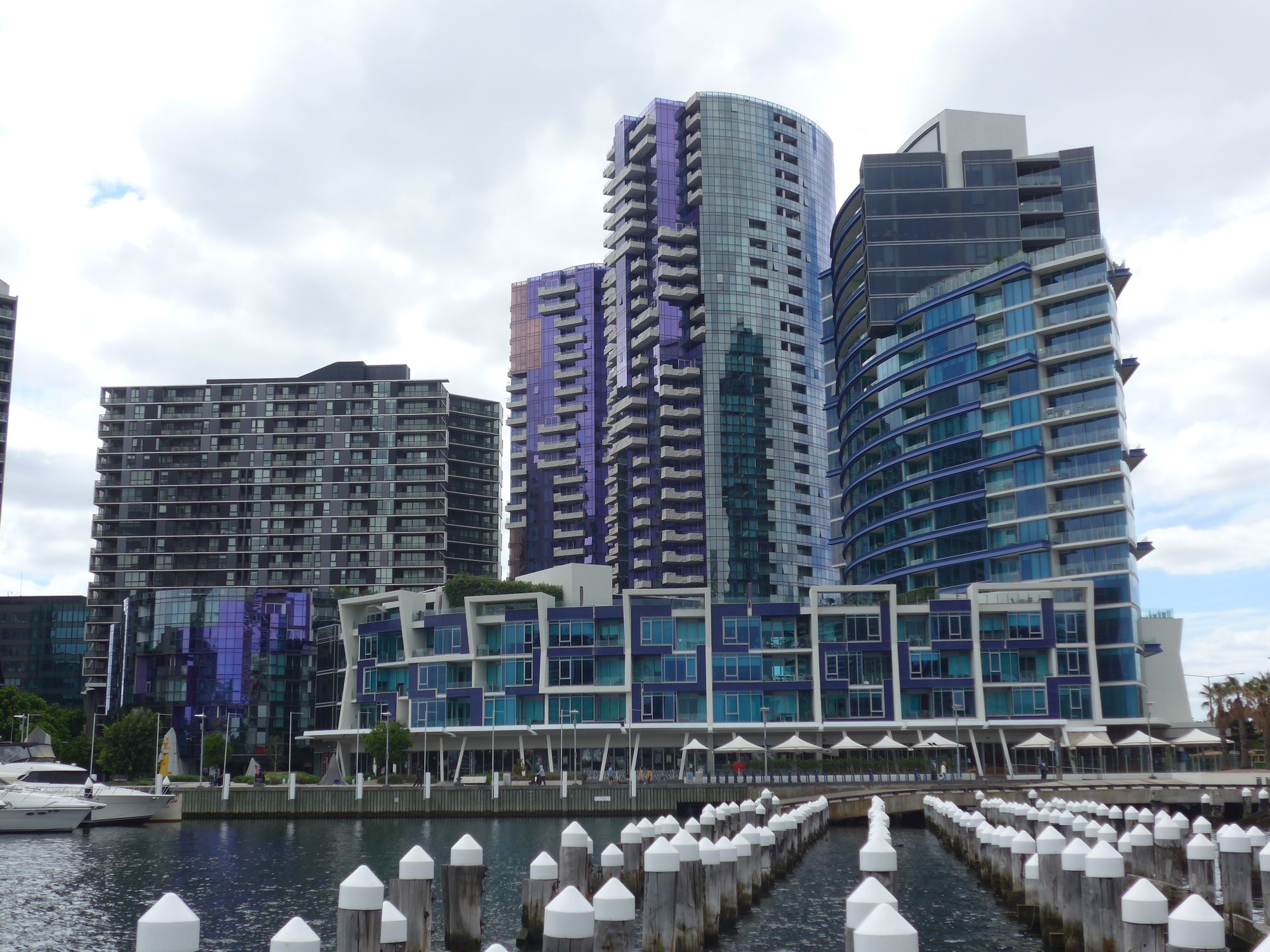
Docklands
We took the historic tram to the new waterfront area, the Docklands. There, you can see modern architecture and art with a waterfront view.

We took the tram to the other side of the city center and had a meal in a very small Colombian coffee shop. Melbourne is home to more than 140 different nationalities. Heather had explained to us in the morning that she couldn't really say what dishes are 'typical Australian'...

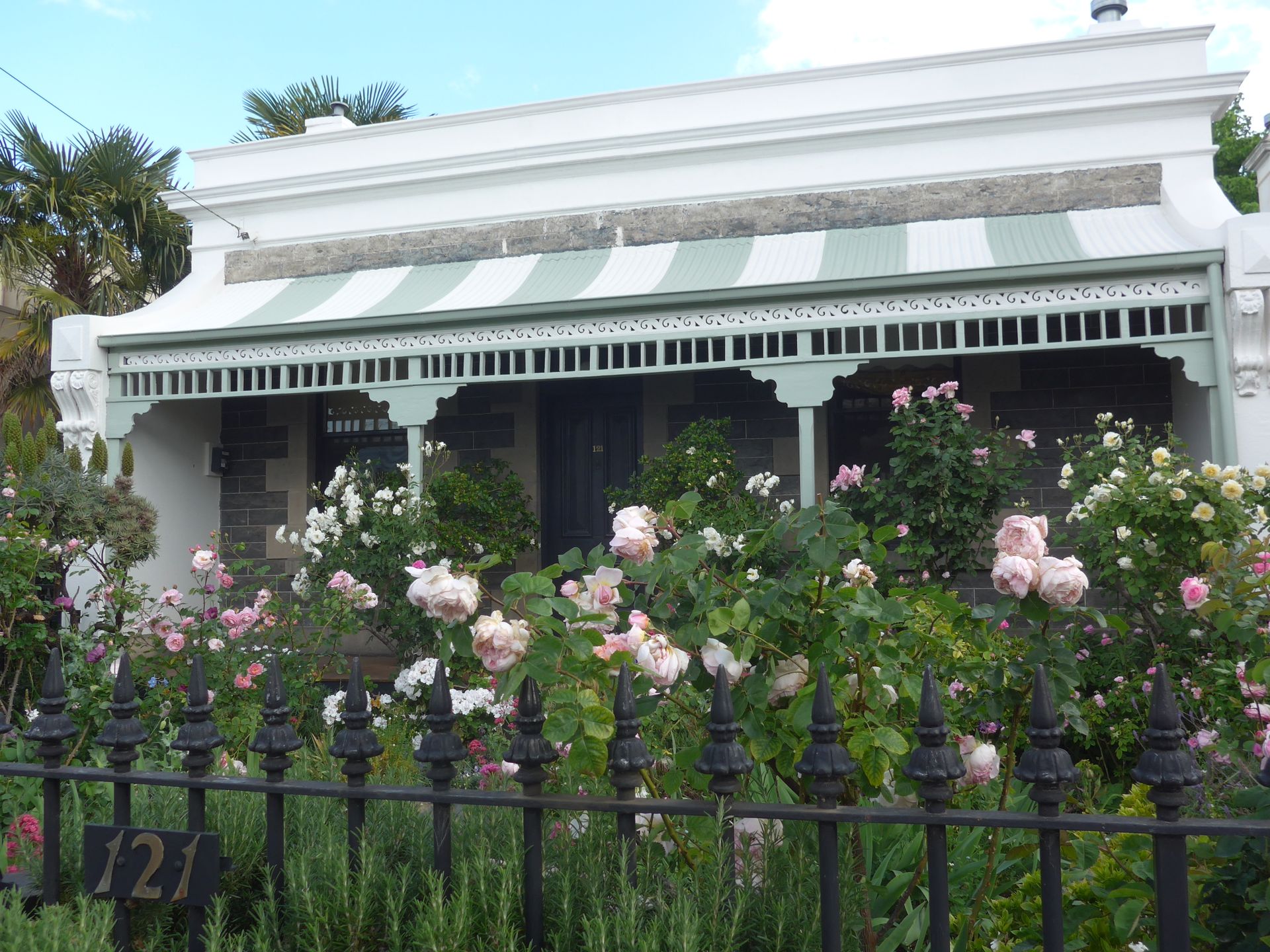
In the evening, we strolled along the banks of the Yarra River and watched the fire show in front of the Crown Casino. The streets and bars were full of well-dressed people. In the afternoon, there was a horse race, as Tuesday was 'Cup Day' in Melbourne, which is a public holiday (because of a horse race!).
Like in English movies, the ladies walked around with hats or other interesting structures on their heads. Most of them were clearly intoxicated and swayed their way.

In the casino, which we could surprisingly enter without showing our IDs, champagne was flowing and people were crowded. One room followed another, and we were amazed at how huge the casino was - and we only looked at one floor.

We didn't dare to tempt our luck but simply watched the hustle and bustle.
Contemporaries of the gold rush in the 19th century, which made Melbourne rich and big, said that the search for gold was similar to gambling.

The next morning, we visited the 'Old Treasury', which was actually built for storing gold. However, by the time it was completed, the gold rush was already over, so the large storage rooms in the basement never served this purpose. Today, a museum there informs about the city's history and the gold diggers.
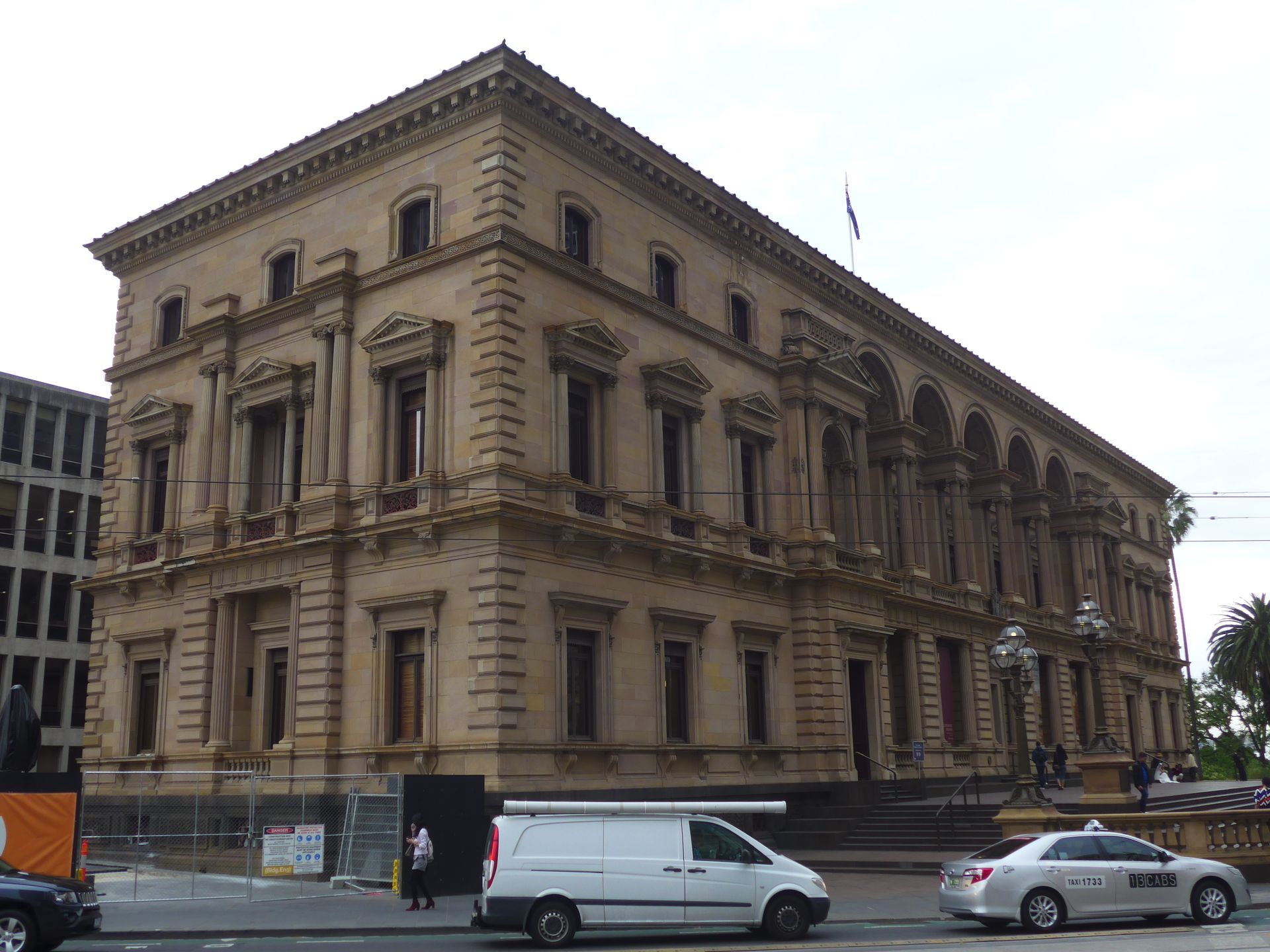
Afterwards, we visited the impressive domed reading room in the State Library. There, an exhibition also informed about the famous Australian outlaw Ned Kelly, who is almost considered a folk hero here. He usually appeared in armor with a helmet, which is now part of the exhibition.
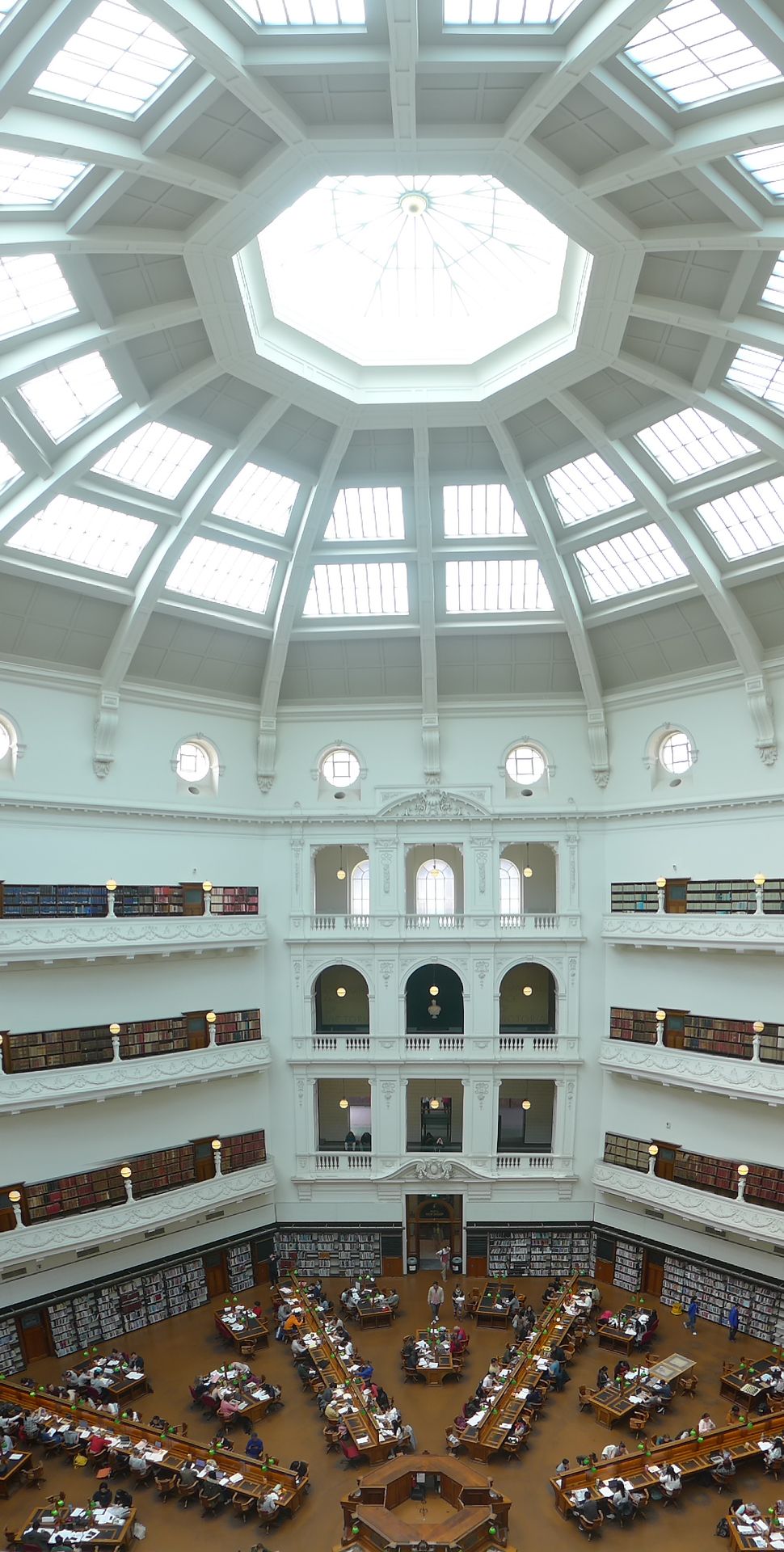
State Library
Actually, we wanted to take a tour of the 'Royal Exhibition Building'. However, since exams were being written there, only a very small part was accessible, so we decided not to take the tour and settled for an outside view.
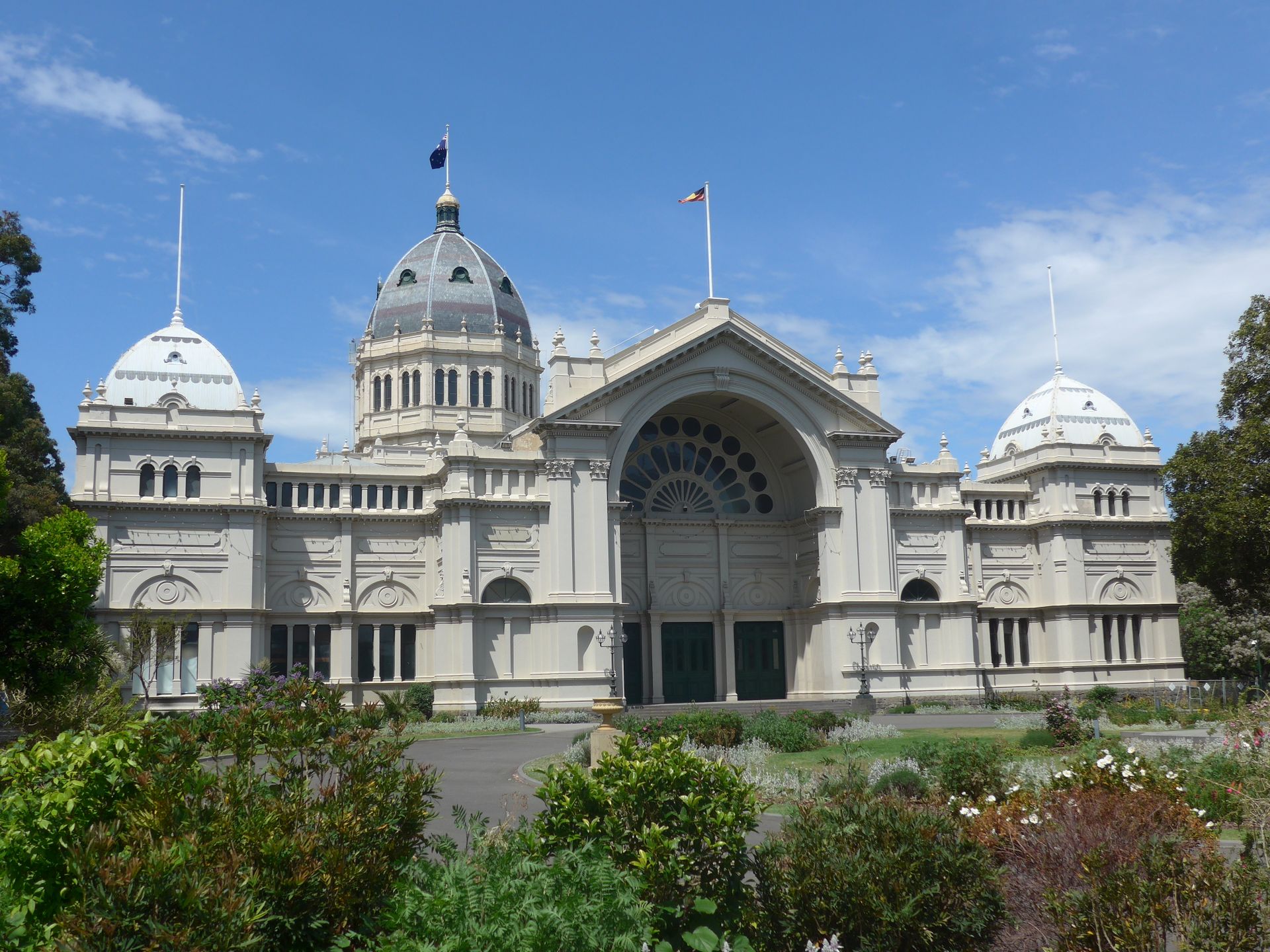
So we had time to have a leisurely meal and stroll through the city. In a chocolate shop, we treated ourselves to a hot Belgian chocolate.

In the evening, we watched the musical 'School of Rock' at Her Majesty's Theatre.

Harpidetu Buletinera
Erantzun
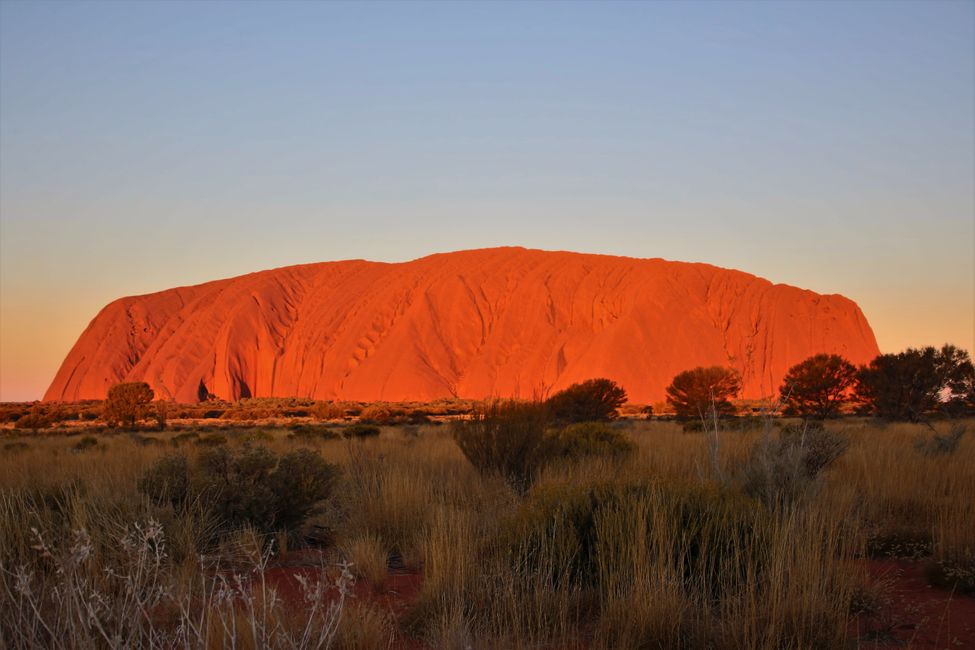
Bidaien txostenak Australia
